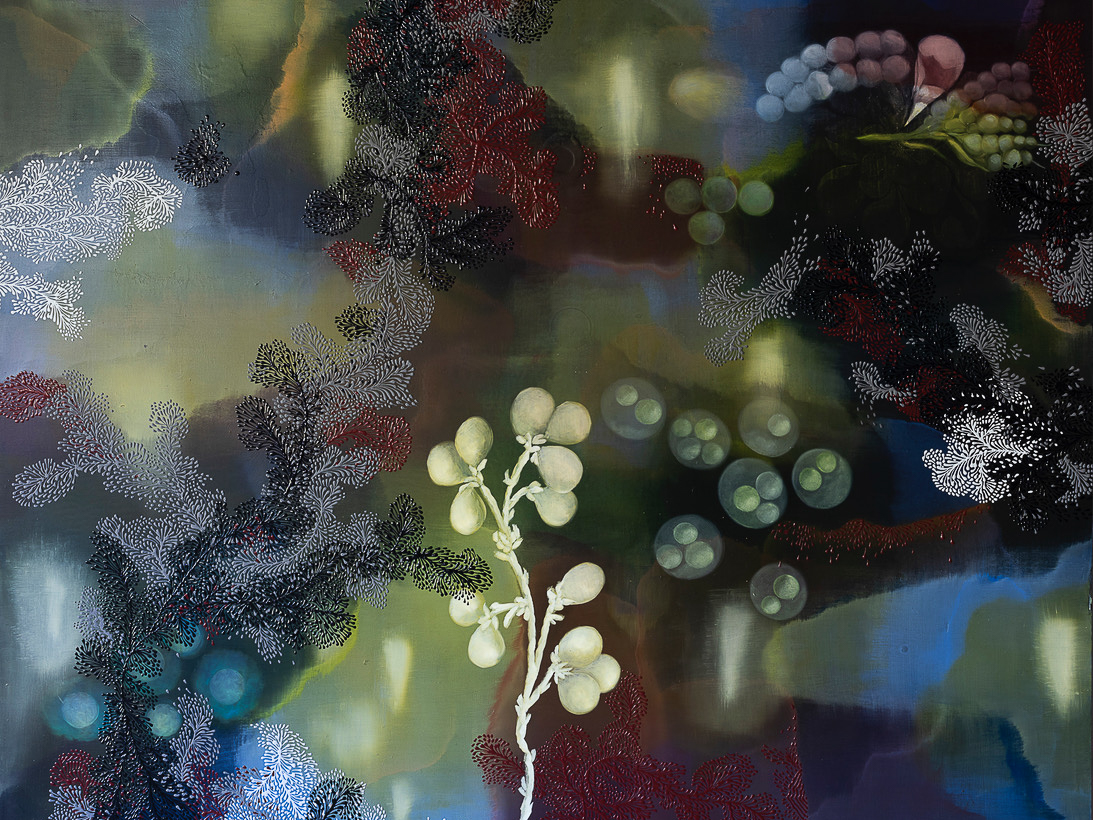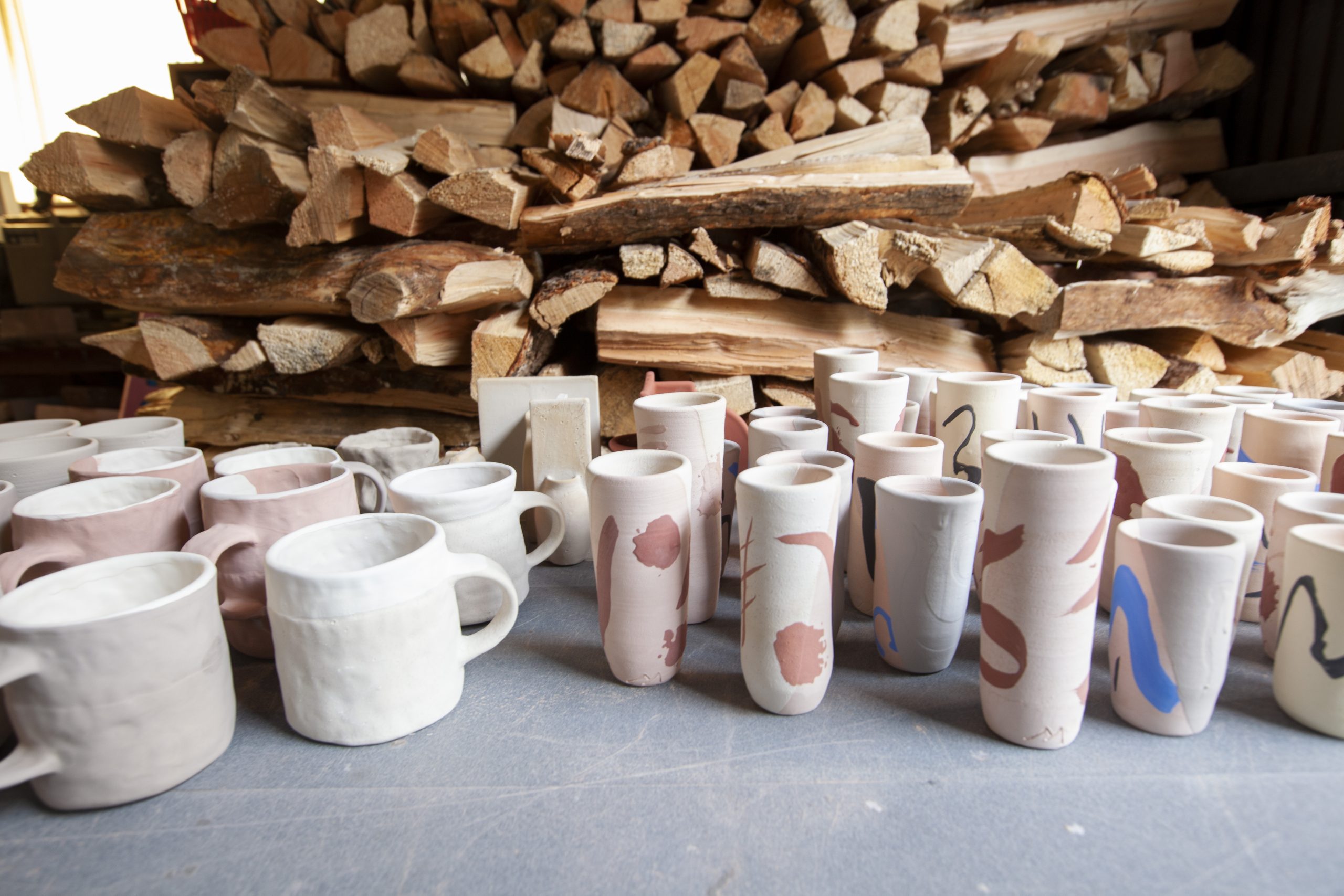Painting & Drawing
Code: D0102-23
-
O
Open to All
Students of any skill and knowledge level.
Painting as Metamorphosis
Jun 5 - 9, 2023
9AM-5PM
Concept
Dive into metamorphosis, the state which not only defines nature but also the process of painting. Using nature as source material, we read, discuss, observe, and then embark on a painting journey, thinking about painting as process and movement rather than as a fixed form. Students explore ways to talk about nature with paint without needing to reproduce observations in a literal way, melding abstraction and representation, discovering and producing depth, and allowing an image to float to the surface. We learn to develop form, mix color, and consider composition, all inspired by what we see around us.
Media
Oil paint on canvas, paper, or wood panel, materials to create texture, natural forms as source material, oil paint glazing, wet-on-wet technique
Supply ListFaculty

Jody Guralnick
Jody Guralnick explores the intersection of science and art, linking the human world and the realm of fungi and microbes, encouraging stewardship of the environment. She has exhibited throughout the US and is the recipient of a Ford Foundation Grant and a Colorado Council for the Arts Visual Arts Fellowship.

Jody Guralnick, Bloom
Join Waitlist for Painting as Metamorphosis
Thank you for your interest in the waitlist. When space in a workshop or program becomes available, registration will open on the website. Everyone on the waitlist will be emailed to alert them of the opening. This ensures that everyone has an equal opportunity to register for the workshop or program.
Painting & Drawing
Make, reflect, consider, engage—these are all critical elements of the Painting and Drawing workshops at Anderson Ranch. Our exceptional workshops combine focused, hands-on art making with critical feedback for artists of all levels. Painting and Drawing guest faculty are phenomenal artists and educators with experience supporting students by offering technical knowledge and encouragement.
The bright, natural light of the Wyly Painting and Drawing Building provides an inspiring environment where students can explore and expand their artistic practice. Our facilities are equipped with individual worktables, wall space, easels, rolling palettes, odorless solvents, a wide range of hand and power tools, computer access with Adobe software, wi-fi, printing, scanning, and projection capabilities. Spend a week here— or several—and engage in a variety of activities that will fuel your practice throughout the year.
Workshop Details
Supply List
Many of the items you'll need are available in the ArtWorks Store. Please click "View Full Supply List" to see a comprehensive list of items you'll need for this workshop.
Lodging & Meals
Housing is limited and includes shared and private lodging options. Reservations will be managed on a first-come, first-served basis. The earlier you reserve housing, the better your chance of receiving your preferred option. Please note: Workshop costs do not include accommodations.
We have established a Business Safety Plan with added layers of precaution that prioritize the health and safety of our staff, students, faculty and guests while continuing to provide you with the Anderson Ranch experience that you know and enjoy.
The Ranch Café meal plan that is included with Room and Board fees strives to provide healthy, creative meals that will nourish your artistic creativity. The meal plan includes 5 days of continental breakfasts that will include a hot offering, 5 lunches with a selection of offerings, and 5 dinners.

Scholarships, College Credit & Discounts
Making Art Accessible
Applications for scholarship support are encouraged. Specific scholarships are funded by Ranch supporters, either through endowed funds or special gifts.
Many colleges and universities offer college credit for workshops taken at Anderson Ranch. Discounts are available for students and teachers.
You Might Also Be Interested In

-
I
Level I
Students have very limited experience or none at all. Classes usually start with a full day of basic instruction.
-
II
Level II
Students have basic knowledge of 2-D art making including form, negative space, value and line.
Jul 29 - Aug 2, 2024
9AM - 5PM
Creating Color, Light and Narrative in Oil
Reginald O'Neal
Tuition $1,225
Code D0918-24
This exploratory oil painting workshop introduces students to a technique-based and conceptual approach to creating an image in this traditional medium. With prompts, demonstrations, and one-on-one instruction, students investigate monochromatic value scale, techniques in oil painting, and working from the figure. The workshop emphasizes color mixing, composition, form, light, and a painting’s potential to tell a story. In addition to focusing on methods and techniques, the class discovers the use of painting to communicate using an exciting visual language.

-
O
Open to All
Students of any skill and knowledge level.
Jul 29 - Aug 2, 2024
9AM - 5PM
Oil Painting: Color, Brush and Mark
Kylie Manning
Tuition $1,225
Code D0917-24
Embark upon an oil painting journey by learning the fundamentals of the medium and finding new ways to develop personal imagery. Emphasis is on developing the lush, nuanced surfaces that oil painting can accomplish, focusing on canvas preparation, underpainting, glazing, color, and brush stroke. Students are encouraged to consider the subject matter, narrative, and many formal concerns that support these concepts. Composition, form, mood, contrast, and surface are also topics to be explored. This rigorous course results in several paintings upon which to build and reflect.

-
III
Level III
Students have formal training in critical issues of 2-D art making, experience with public critiques and a solid portfolio of their artwork.
-
IV
Level IV
Students have advanced skill and knowledge of painting and drawing. Students are highly motivated and self-directed, have a minimum of five years experience in their field and have multiple portfolios of their artwork. Portfolio review is required for admittance to some Level IV classes.
Aug 5 - 9, 2024
9AM - 5PM
Studio Momentum: Strategy and Direction
Wendy White
Tuition $1,225
Code D1020-24
The focus of this advanced painting studio workshop is developing and sustaining direction and momentum within the personal studio practice. Workshop dialog places particular emphasis on conceptual strategies, formal connections, and the ways in which ideas are cultivated and built within each artist’s particular studio parameters. Students gain insight into established contemporary artists’ methods as well as hone their own concept-generating skills through intensive conversation among their peers, independent studio time, and one-on-one and group critiques.





